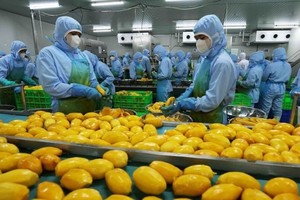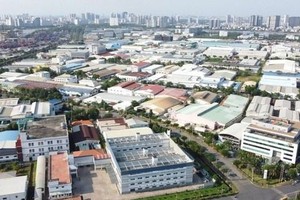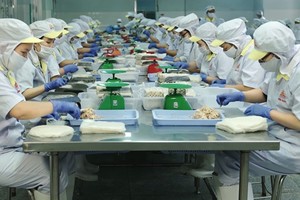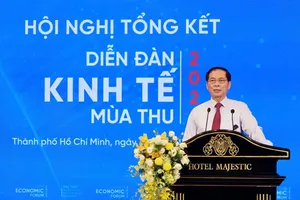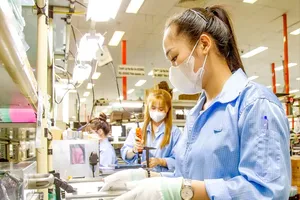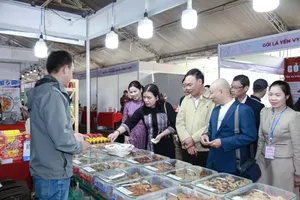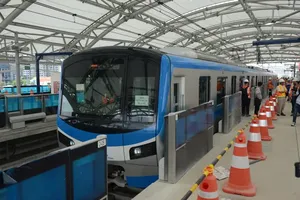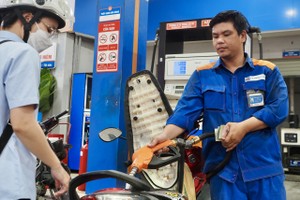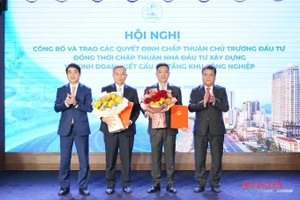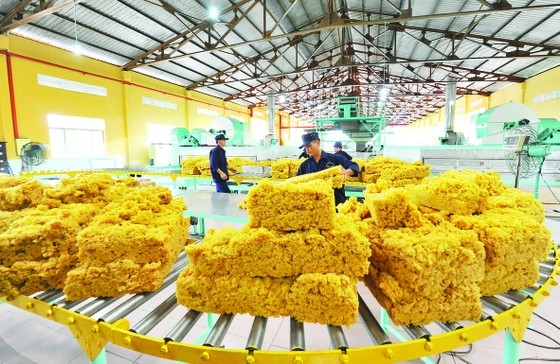 |
Many rubber export companies are facing difficulties due to the delay in tax refunds. |
This delay in receiving VAT refunds exacerbates the challenges faced by these businesses in the current economic hardship.
Challenges and delays in VAT refunds
During our visit to the premises of Hoa Thuan Trading Company Limited, a rubber export company located in District 1, Ho Chi Minh City, in early July, we noticed the absence of its employees. Through a telephone conversation, Ms. Dinh Thi Thanh Tam, the company's director, informed us that her company had requested a VAT refund of VND50 billion, but it had not been processed yet. Consequently, they had to halt their export activities for nearly a year due to insufficient funds. Ms. Thanh Tam expressed her concerns, stating that the longer the VAT refund is delayed, the closer her company comes to bankruptcy.
On June 23, the General Department of Taxation provided a response to the HCMC Tax Department, offering guidance on VAT refunds for Hoa Thuan Trading Company Limited. The guidance specifically addressed the documentation of payment to fulfill the refund request following regulations. However, according to the leadership of Hoa Thuan Trading Company Limited, although this guidance has resolved one obstacle in VAT refunds for the company, namely the payment documentation (receipt), the challenges and obstacles related to the traceability of raw materials have yet to be resolved.
According to our findings, several businesses are currently enduring the wait for their VAT refunds. For instance, Hoang Dung Trading Company Limited in District 10, HCMC, is awaiting a tax refund of approximately VND40 billion, while Van Xuan Industrial Company Limited in District 1, HCMC, is awaiting a refund of VND58 billion.
Recently, the General Department of Taxation sent a document to the HCMC Tax Department concerning VAT refunds for rubber enterprises. The General Department of Taxation, on May 26, issued a letter urging the tax departments of provinces and cities to accelerate the resolution of VAT refund cases for taxpayers. For files that encounter challenges or receive complaints from businesses, prompt dialogue sessions must be arranged to address and clarify the concerns. Additionally, the General Department of Taxation requested the HCMC Tax Department to provide a report on the outcomes of resolving VAT refund cases from 2022 until the present time.
Meanwhile, Mr. Nguyen Chi Linh, Chairman of the LiOA brand, revealed that from February to the end of June 2023, the cumulative amount of VAT taxes awaiting refunds for his company had reached nearly VND200 billion. Specifically, LiOA Company in Dong Nai Province alone accounts for over VND142 billion. Of which, the Dong Nai Provincial Tax Department has refunded VND10 billion. The LiOA brand, with a presence in the market for 36 years, exports voltage stabilizers, plug sockets, wires, cables, and copper wires to over 50 countries. The average monthly export value for the first half of the year reached US$14 million. The delayed VAT refunds have caused the business to face difficulties such as a constrained cash flow, almost stagnant production, and a significant impact on its international reputation with trading partners.
Call for policy reform
Mr. Ngo Sy Hoai, Vice Chairman cum Secretary-General of the Vietnam Timber and Forest Product Association, highlights that wood industry businesses are still awaiting VAT refunds. Furthermore, government agencies have not introduced any new measures to streamline the inspection and verification procedures for VAT refunds. The challenge of tracing the origins of wood chips and wood pellets purchased from multiple traders adds to the complexity of the situation.
Mr. Thang Van Thong, Deputy Head of the Vietnam Wood Chip Association and Deputy General Director of Hao Hung Company Limited, which specializes in exporting wood chips and pellets, located in Tan Binh District, HCMC, explained that when wood was sold to export businesses, it had passed through multiple traders. Under the current tax system, if any of these traders could not be identified, the company would not receive a VAT refund. However, with transactions involving numerous traders and spanning across different provinces, the process of individually examining each company and trader creates uncertainty regarding the timeline for receiving the refunds.
Mr. Thong highlights, "Wood chip businesses estimate that there are approximately VND6 trillion in taxes yet to be refunded."
Mr. Nguyen Quoc Anh, Chairman of the HCMC Rubber and Plastic Association, has revealed that around 100 companies in the rubber and plastic industry have not received tax refunds, with an amount ranging from at least VND1 billion to a maximum of approximately VND300 billion.
During a discussion with a reporter from SGGP Newspaper, the officials from the HCMC Tax Department said they are currently in talks with some rubber exporting companies experiencing challenges in value-added tax refunds. However, up to this point, their actions have been limited to acknowledging the opinions and forwarding recommendations to the General Department of Taxation. No tax refunds have been processed for any cases thus far.
* Associate Professor Dr. Dinh Trong Thinh, Academy of Finance: Tax refunds time frame should be clearly regulated
According to the regulations, tax authorities are responsible for fully implementing tax refunds for businesses, following the standards and principles. In recent times, some businesses, especially those in the timber industry and a few other sectors, have been found to deliberately engage in fraud to misappropriate tax refunds, which requires the management agencies to take time for inspection and reassessment. This is necessary. However, the law also clearly states the maximum duration for such inspections. If necessary, this time frame can be extended, but it should not exceed 15-20 days and certainly not last for an entire year. When tax refunds are delayed, the tax management authorities need to consider and specify the acceptable duration of the delay. Additionally, it is crucial to establish regulations that hold businesses accountable even after they have received tax refunds. If fraud is discovered during subsequent inspections, the businesses must bear legal responsibility, and the refunded amount may be recovered, along with the imposition of penalties. This measure aims to enhance the accountability of businesses.
In reality, there are cases of violations related to tax refunds, but it is unfair for compliant businesses to suffer as a consequence. The General Department of Taxation should address these issues promptly; otherwise, it becomes the responsibility of the Government and the National Assembly to resolve them and alleviate the burden on businesses.
